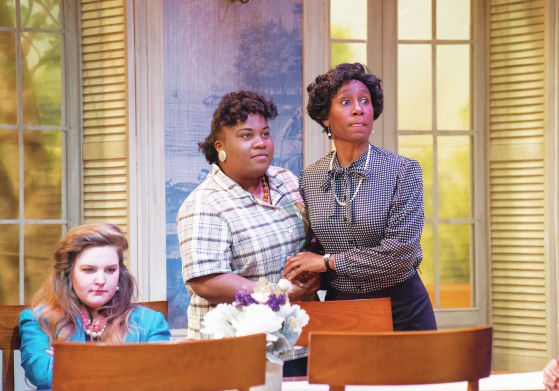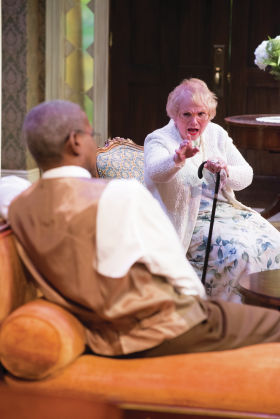

It's said that what distinguishes U.S. citizens from their European counterparts are the former's propensity for chronological inflation. The Gordons of Harrison, Texas, accumulated their fortune over a period of barely exceeding a hundred years, but even this relatively short history of prosperity—earned through myriad risks, gambles and lucky breaks—makes for entitlement sufficient to generate filial conflict over its continuance.
The source of the discomfort stems from the three Gordon siblings' reliance upon their expectations—in this case, reduced to a no-longer-productive cotton farm and an ecologically challenged ante-bellum mansion—to sustain their chosen lifestyles. Management of the family business provides an income for Lucille and her son (addressed as "Son" by his kin, in accordance with southern custom), but the 1987 recession has curtailed the spending habits of sister Mary Jo and her spoiled daughters, leading brother-in-law Bob to explore means for evading hefty inheritance taxes. Further muddying the financial waters are the impending marriages of restless Son to a progressive-minded schoolteacher and that of dissolute brother Lewis to a teenage drive-in waitress. Oh, and let's not forget the clan matriarch, herself, who has her own ideas about the disposal of her worldly goods.
This uneasy situation could develop in a number of ways, depending on whether the playwright is Anton Chekhov, Tennessee Williams or Lillian Hellman. Since Dividing the Estate is a Horton Foote play, however, its focus is, not murder or "the reek of mendacity"—when one's residence is in danger of foreclosure, worrying about money is less about simple greed than staving off homelessness, but economic necessity. Adults accustomed to receiving a monthly allowance or asking their mother for loans may bridle at the prospect of looking for work (despite the assurance of their less-privileged acquaintances that employment, and the independence engendered thereby, is not so terrible a fate), but such are the demands of living in our modern society.
The fashion these days is to jeer the mighty-brought-low, but who among us can claim to be wholly safe in whatever social stratum we occupy? Director Cody Estle and the Raven Theater ensemble never lose sight of their author's compassion for his flawed characters, resisting the temptation to buffoonery (though JoAnn Montemurro and Ron Wells come perilously close in their final scenes—perhaps a result of the action being placed far downstage). Whatever we may feel toward the Gordons, their immediately recognizable authenticity and humanity render their survival as auspicious as that of their ancestors following another social crisis a century earlier.
